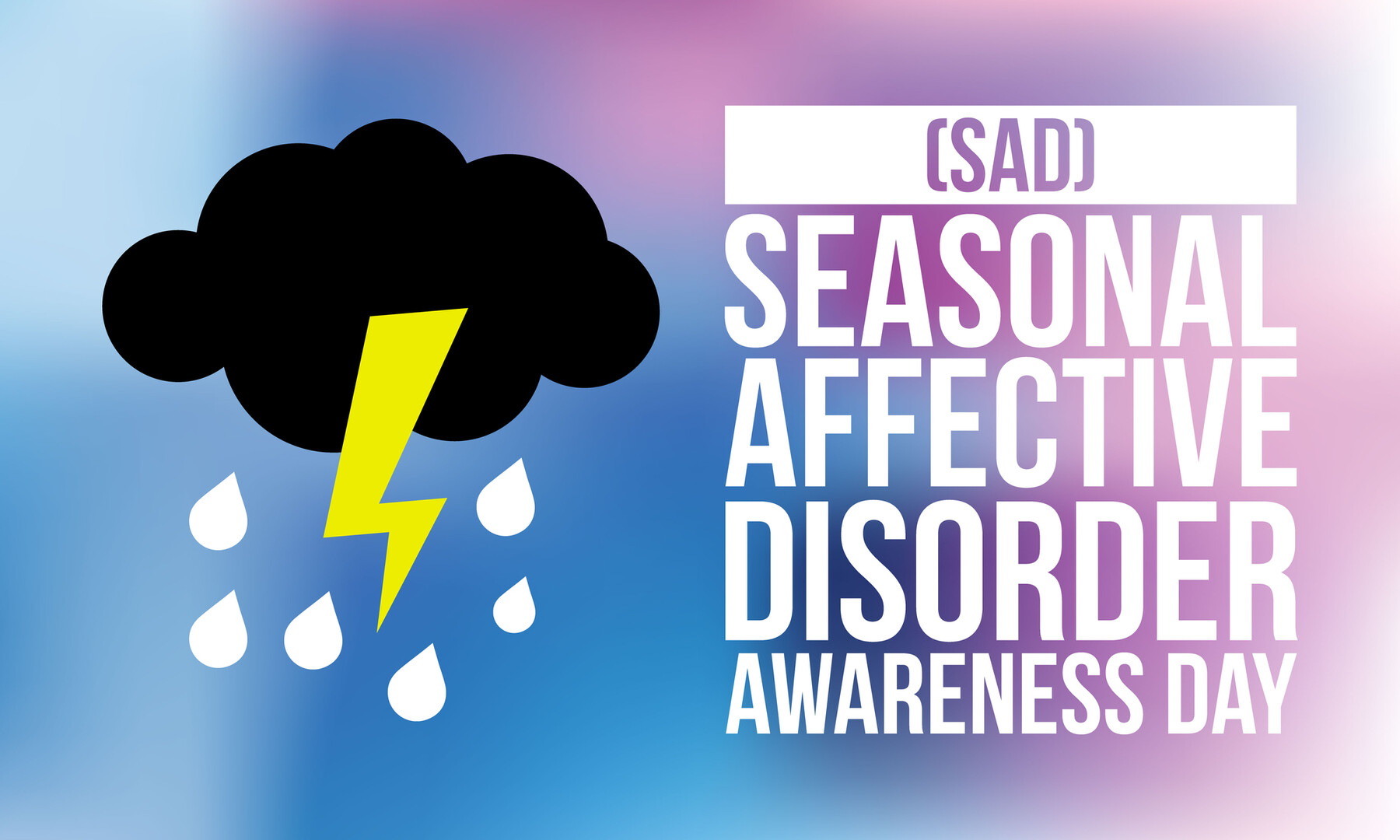Winter blues can affect us all. The days are short, the holidays are behind us, and the world seems gray and cold. However, if you have a severe case that is negatively impacting your day-to-day life, it may be something more serious like Seasonal Affective Disorder (SAD). This is characterized as a form of depression that has a seasonal pattern which can start in fall and last until spring. It is thought to be associated with reduced sunlight. As the days get shorter and colder, the lack of sunlight can leave you feeling sad and less energetic, or you may experience changes in sleep and eating habits, reduced interests, and the desire to isolate yourself from others.
SAD is more than just “winter blues." The symptoms can be distressing and overwhelming and can interfere with daily function. SAD has been linked to a biochemical imbalance in the brain caused by shorter daylight hours and less sunlight in winter.
This year, in addition to being in the midst of cold winter months, we are coping with the negativity every time we turn around. We are often isolated and separated from our family and friends. We also have fewer social outlets and the economy has been uncertain for some time. These factors and others can lead to the same symptoms we may see in SAD.
Common symptoms of the “winter blues” or “SAD” include:
- Feeling of sadness or depressed mood
- Loss of interest or pleasure in activities once enjoyed
- Changes in appetite - usually eating more and eating high fat/carb foods
- Change in sleep - usually sleeping too much
- Loss of energy or increased fatigue
- Increase in restless activity
- Reduced level of self-worth or self-esteem
- Trouble concentrating or making decisions
- Thoughts of hopelessness
SAD can be effectively treated in a number of ways, including light therapy, antidepressant medication, talk therapy, or some combination of these techniques. While symptoms will generally improve on their own with the change of season, symptoms can improve more quickly with treatment.
Fortunately, there are several steps you can take to help prevent this disorder, beginning with certain lifestyle changes. There are seven different aspects of well-being, and you can focus on making changes in each during fall and winter:
- Physical– Maintaining your level of exercise and a healthy balanced diet are great ways to elevate your mood and energy levels throughout the winter months. It is also important to regulate your sleep patterns; avoid sleeping during the day and avoid overindulging in caffeine and alcohol. Smile! Your smile can lift your mood as well as the mood of others.
- Emotional – Keep a gratitude journal. It’s easy to get sucked into all the parts of the day that aren’t perfect. Instead, make a point to write down what you’re grateful for each day.
- Social– Make an effort to keep socializing in a safe way. During COVID-19, many people are feeling isolated - especially older adults. Maintain social relationships by making a phone call, setting up a video chat, sending a letter, or even writing a few quick text messages. Checking in on other people can help boost both your spirits and theirs.
- Intellectual– We can all think of reasons why we shouldn't get something done, but creating and sticking to a schedule can help you avoid isolation and dwelling on things that make you feel down.
- Spiritual – Be mindful of this moment. Instead of focusing on the negative aspects of winter, embrace the season and find things you like about it.
- Environmental– Get outside! Even if it’s only for a few minutes, the fresh air and sunshine can help you feel refreshed. Lightbulbs that emit a certain wavelength that mimics the vitamin D in sunlight can also be helpful to use periodically.
- Vocational – Focus on the positive and try to manage your stress. Do something that relaxes you, like reading a book or taking a bath.
Additionally, while we're coping with the COVID-19 pandemic, it's especially important to remember to stay positive. In times of constant negative messaging, strive for a positive attitude and move forward with determination and hope. Engage in activities that are positive, heartwarming, stress-reducing, and laughter-inducing - and remember that we will get through this.
These simple actions can help you stay positive:
- Remember that things will not be this way forever
- Remind yourself of what is good in your life
- Limit your TV time
- Watch a funny video or movie
- Look in on your neighbors
- Send a card or gift in the mail to a loved one
- Try a new hobby or rediscover an old one
- Provide random acts of kindness to others
If you have been experiencing signs of the winter blues or SAD for more than two weeks and lifestyle changes aren’t helping to alleviate the symptoms, it may be time to talk to your doctor or contact a professional. Depression is a serious condition and the longer treatment is delayed, the harder the recovery.
Here are some additional resources online:
The Mental Health Association of Westchester
National Association of Mental Illness/Westchester
Family Health Services of Westchester
What is seasonal affective disorder?
The information in the above article is not intended nor implied to be a substitute for professional medical advice, diagnosis, or treatment. Always seek the advice of your physician or other qualified health provider with any questions you may have regarding a medical condition.
